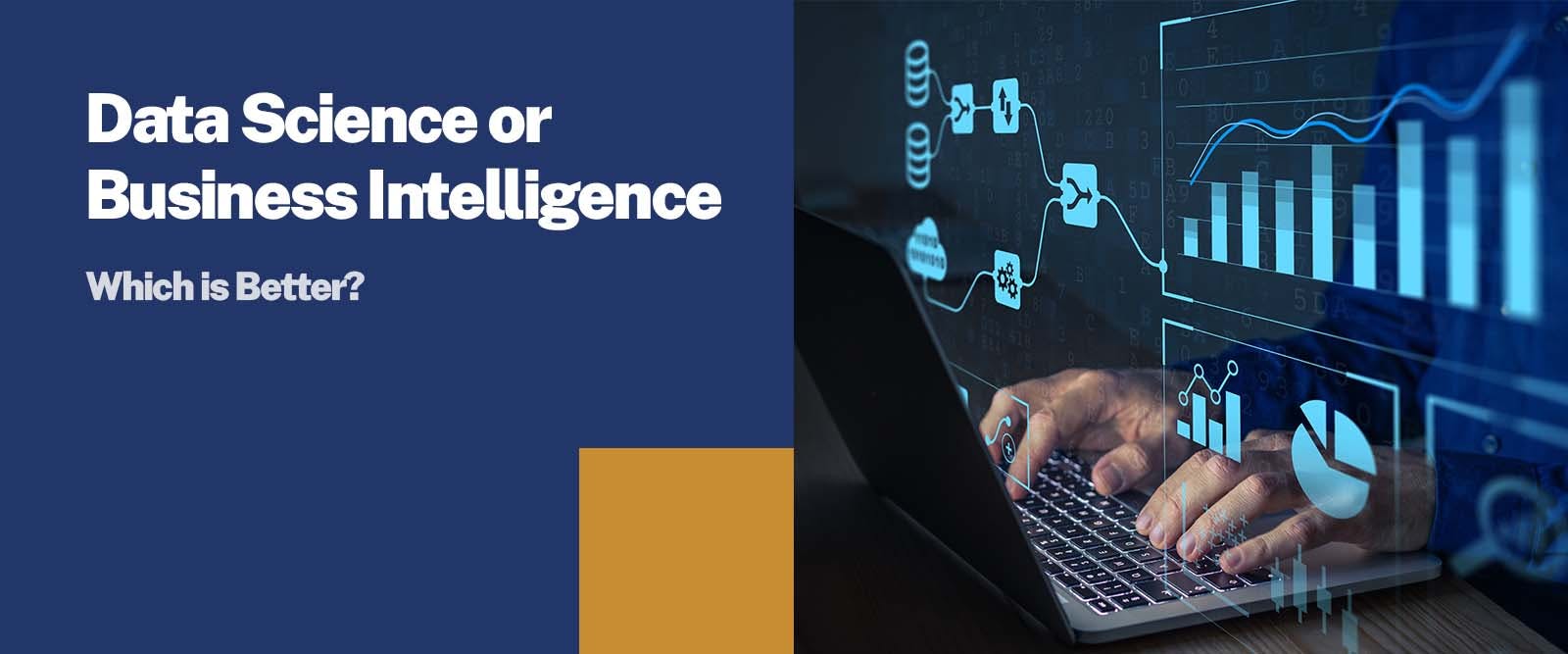5800 students unlocked their dream jobs with UG/PG programs in top colleges. Apply Now!
In today's data-driven world, the demand for professionals with expertise in data science and business intelligence has grown exponentially. These two fields play a critical role in helping organisations make informed decisions and achieve their business goals. Pursuing MBA in either of these courses will provide a better career path along with in-depth knowledge. However, there has been an ongoing debate among professionals and academics about which is better – data science or business intelligence.
In this blog, we'll explore the differences between data science and business intelligence and help you determine which path is right for you.
What is Data Science?
- Data science is a multidisciplinary field that involves using statistical and computational methods to extract insights and knowledge from data.
- Data scientists work with a variety of data types, including structured data, such as data stored in databases or spreadsheets and unstructured data, such as text, images, and video.
- It is used in a variety of industries and applications, from finance and healthcare to marketing and social media.
- Students who wish to pursue MBA in Data Science should have completed their bachelor’s with a minimum of 50% marks from any field.
- Candidates may need to appear for an entrance exam, such as the Common Admission Test or CAT, the Management Aptitude Test or MAT, or the Xavier Aptitude Test or XAT. Scores from these exams are often used by institutions to evaluate candidates' aptitude for MBA programs.
- Data scientists and analysts are among the highest-paid professionals in the job market today, and the demand for skilled professionals is expected to continue to rise in the coming years.
What is Business Intelligence?
- Business Intelligence Involves using technology, tools, and techniques to collect, integrate, and analyse data from various sources such as databases, applications, and spreadsheets.
- A business intelligence analyst is responsible for analyzing data, identifying trends, and providing insights to help businesses make informed decisions.
- It can be used in a variety of applications, including financial analysis, marketing analysis, supply chain optimisation, and customer relationship management.
- Students wanted to pursue MBA in Business Intelligence should have completed their bachelor’s with a minimum of 50% marks from any field.
- Many MBA programs require applicants to take MBA entrance exams such as CAT or MAT. While, some MBA in Business Intelligence programs may require applicants to have relevant work experience in the field of business intelligence, or related areas.
- As organisations increasingly rely on data-driven insights to make informed decisions, business intelligence analysts will play a critical role in helping businesses succeed in a data-driven world.
Difference between Data Science and Business Intelligence
|
Factors |
Data Science |
Business Intelligence |
|
Concept |
Data science is an interdisciplinary field that combines elements of mathematics, statistics, computer science, and domain-specific knowledge. |
Business Intelligence is a set of technologies, applications, and processes that are used by enterprises to analyze business data and gain insights into business performance. |
|
Flexibility |
Data science is flexible and is not limited to any particular industry or domain, and can be applied to any field that generates data. |
BI is often less flexible than data science because data sources typically need to be pre-planned in BI. |
|
Method |
Data science relies on the scientific method to generate insights and knowledge from data. |
BI depends on the analytic method to generate insights. |
|
Complexity |
Data science involves using advanced statistical and machine learning techniques to extract insights and build predictive models from large and complex data sets. |
Business intelligence typically involves collecting, processing, and visualizing data to monitor key performance indicators (KPIs) and track business metrics. |
|
Tools |
Data Science uses tools such as SAS, BigML, MATLAB, Excel, etc. |
Business Intelligence uses tools such as InsightSquared Sales Analytics, Klipfolio, ThoughtSpot, Cyfe, TIBCO Spotfire, etc. |
|
Usage |
Data science can be a powerful tool for companies looking to reduce risk and increase income by anticipating future scenarios. |
BI can help organisations perform root cause analysis on a failure or understand the current status of various business processes. |
|
Data |
Data science often involves working with both structured and unstructured data to gain a comprehensive understanding of the data. |
BI only work with structured data for a better understanding. |
Which is Better - Data Science or Business Intelligence?
Data science involves using statistical and computational methods to analyse large sets of data and derive insights that can help businesses make informed decisions. On the contrary, business intelligence focuses on collecting, analysing, and presenting data in a way that can be easily understood by decision-makers.
Ultimately, the choice between data science and business intelligence depends on your individual interests, skill set, and career goals. If you enjoy working with large datasets and have a strong background in statistics and programming, data science may be a better fit for you. On the other hand, if you have a knack for visualising and presenting data in a way that is easily understandable to non-technical stakeholders, business intelligence may be the better option.
Conclusion
Both data science and business intelligence have their unique strengths and benefits and are rapidly evolving fields. The key to success in either field is a passion for working with data and a commitment to using data-driven insights to help businesses make informed decisions and achieve their goals. Regardless of which path you choose, it's important to continually develop your skills and stay up-to-date with the latest industry trends and technologies.
With Sunstone, students can learn occupational skills with the help of training courses. Students are benefited with 70+ training sessions from experts guest faculty (ex-IIMs, IITs). Along with this, students can get hands-on experience from capstone projects, which can be helpful in securing job offers.
HELP
Take the first step towards your dream job.
ABOUT THE AUTHOR

